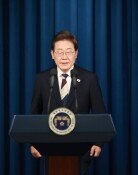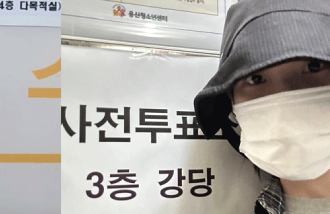Public skepticism feared if PPP’s third emergency committee fails to advise President candidly
Public skepticism feared if PPP’s third emergency committee fails to advise President candidly
Posted December. 16, 2023 09:05,
Updated December. 16, 2023 09:05
A member of Korea's ruling People Power Party (PPP) anticipated possible intervention from the Presidential Office two days before party leader Kim Ki-hyun Kim resigned. On that day, a group of pro-president first-time PPP lawmakers aggressively targeted a non-mainstream faction within the party in an online chat, labeling them as 'moles,' 'reactionaries,' or part of a 'suicide squad' for urging Kim's resignation. Some criticized those pro-Yoon first-timers in the party for staunchly defending Kim. These dynamics led the aforementioned PPP member to speculate that the Presidential Office might fear losing control over the party to Kim, prompting them to consider decisive action in response.
Two days later, Kim resigned. Sources close to him asserted that he was outplayed in a power struggle with the Presidential Office. Kim, elected as the party leader to represent President Yoon's intentions at the March 8 Party Convention, stepped down as desired by the President. The sources further claimed this was feasible because the party was under the control of the Presidential Office.
Kim's resignation sparked a heated internal debate within the party, prompting discussions on the necessity of reforming the vertical president-party relationship. During a press inquiry about the recommended head for the party's Emergency Planning Committee, an influential member expressed, "The central trees have been rooted out one after another. Now, it's evident that we need new soil, not another new tree." With two PPP leaders, Lee Jun-seok and Kim Ki-hyun, stepping down prematurely within the first year and seven months of the Yoon Suk Yeol Administration, the party now faces the formation of its third Emergency Planning Committee to navigate the current precarious situation.
Many within the party reportedly emphasized that the primary criterion for the new Emergency Planning Committee leader should be the ability to rebuild the relationship with the President. During the private general party meeting on December 15, Lawmaker Kim Oong expressed concerns that the party was losing support due to excessive alignment with the President's intentions. He stressed the need for a committee head who wouldn't serve as another Yoon's proxy. Lawmaker Seo Byeong-su added that the President isn't all-powerful and emphasized the party's requirement for a leader capable of rectifying Yoon's errors and courageous enough to challenge the President when necessary.
The call for leadership to confront the President stems from a significant defeat, with a 17.15 percentage point difference in the Seoul Gangseo District Mayor by-election. This loss raised concerns about potential defeats in many election precincts in the metropolitan areas of Seoul and Gyeonggi Province for the PPP. President Yoon reinstated the former mayor's rights three months after losing the position due to a Supreme Court conviction. The party initially argued against fielding a candidate for a by-election caused by a party member's vacancy but ultimately selected the former Gangseo District mayor to fill the vacancy he created.
The ruling party achieved a sweeping victory in the by-election immediately following the PPP's Yoon winning the presidential election. Three years into office, the party faces emergency management in preparation for next year's general election, where the public will weigh support for stability versus the restraint of power. The fate of Yoon's Administration hinges on the committee's success. The PPP's acting party representative noted that the party-president relationship is more communicative than hierarchical, but acknowledged public perception. What the public perceives is the very definition of public sentiment. The newly formed emergency planning committee should mark the PPP's starting point in reshaping public sentiment.




![“국힘 41% 득표가 졌잘싸? 되레 독 될수도”[정치를 부탁해]](https://dimg.donga.com/c/138/175/90/1/wps/NEWS/IMAGE/2025/06/04/131745994.1.jpg)


